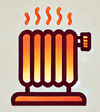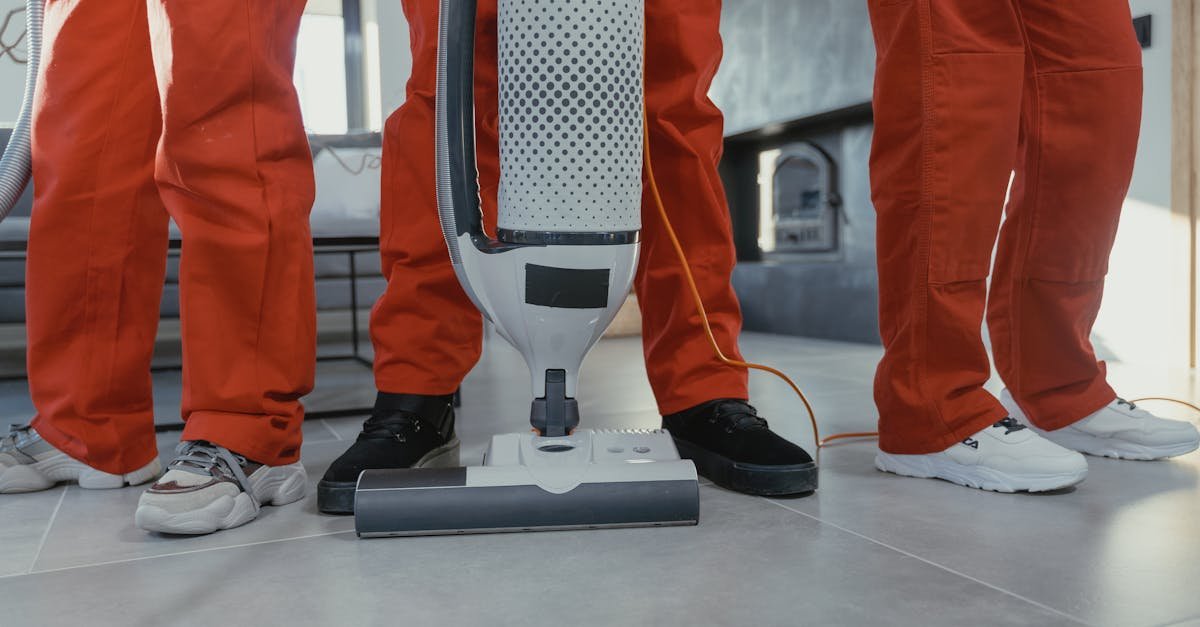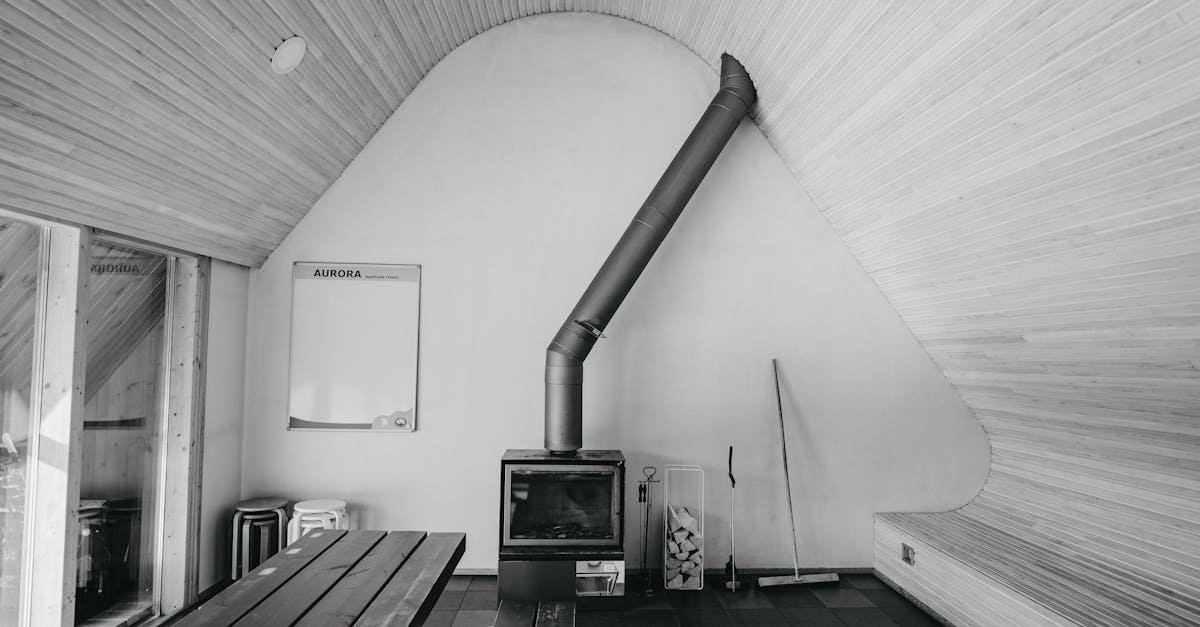Improving heating efficiency can save you money and reduce your carbon footprint. By upgrading your heating system, sealing air leaks, and optimizing your thermostat settings, you can significantly enhance the performance of your home’s heating.
Investing in energy-efficient appliances and regular maintenance also plays a crucial role in ensuring your system runs at peak efficiency. With a few simple changes, you can enjoy a warmer home while keeping your energy bills in check. Let’s explore effective strategies to boost your heating efficiency and create a more comfortable living environment.
Understanding Heating Efficiency Improvement
Heating efficiency improvement plays a key role in cutting energy costs and reducing your environmental impact. It involves various strategies, from upgrading systems to enhancing home insulation.
Importance of Heating Efficiency
Heating systems consume a large portion of total energy used in buildings. In the U.S., homes and commercial buildings represent 40% of energy usage, with a significant part allocated for heating and cooling. Improving heating efficiency cuts energy waste. For example, you can seal air leaks or add insulation. These straightforward actions lead to noticeable energy savings. Higher efficiency also lowers your energy bills. You’ll see savings, especially in colder months. Also, enhanced heating efficiency lowers greenhouse gas emissions. This improvement benefits the environment and supports a sustainable future.
Key Metrics for Evaluation
Evaluating heating efficiency involves several important metrics. First, Seasonal Energy Efficiency Ratio (SEER) measures cooling performance. Higher SEER ratings indicate greater efficiency. Next, Annual Fuel Utilization Efficiency (AFUE) rates the efficiency of heating systems. Systems with higher AFUE percentages convert more fuel into usable heat. Another critical metric is the Energy Star rating. Products with this label meet strict energy efficiency guidelines. You should also check your heating costs compared to similar homes. This comparison highlights potential areas for improvement. Tracking these metrics helps you make informed decisions on upgrades and maintenance.
Techniques for Heating Efficiency Improvement
Improving heating efficiency involves several effective techniques. Here are some key strategies that can help.
Insulation Enhancements
Enhancing insulation significantly boosts heating efficiency. Insulation keeps warm air in and cold air out. You can insulate walls, attics, and basements. Selecting high-quality materials maximizes benefits. For instance, spray foam and fiberglass are popular choices. Make sure to seal gaps and cracks to prevent air leaks. Proper insulation can reduce energy bills by up to 20%. Better insulation makes your home more comfortable too.
Energy-Efficient Equipment
Switching to energy-efficient equipment leads to substantial savings. Energy Star-rated appliances consume less energy. Furnaces and boilers with high Annual Fuel Utilization Efficiency (AFUE) ratings operate better. Upgrading can lower utility costs and emissions. Consider smart thermostats for optimal performance. They adjust temperature based on your habits, enhancing comfort while saving energy. Investing in energy-efficient equipment pays off long-term. Quality products outlast older models, reducing replacement needs.
The Role of Technology in Heating Efficiency
Technology plays a vital role in enhancing heating efficiency. It helps save energy, cut costs, and improve comfort in your home.
Smart Thermostats
Smart thermostats make heating systems more intelligent. They allow you to manage your home’s temperature from anywhere using a smartphone. Remote control adjusts settings based on your daily routine, reducing energy waste when you’re away.
These devices learn from your habits. They adapt to your preferences, cutting down on unnecessary heating. Studies show that optimizing temperature settings with smart thermostats can save you up to 10-15% on your energy bills each year.
Advanced Heating Systems
Advanced heating systems also contribute to energy efficiency. These systems use newer technologies, such as variable-speed motors and modulating gas valves. They provide consistent heating while consuming less energy.
High-efficiency furnaces come with strong ratings, like Annual Fuel Utilization Efficiency (AFUE) of 90% or higher. Switching to these systems can lead to noticeable savings. For example, a home with an older furnace may cut utility bills by 20-30% after upgrading.
Investing in advanced heating solutions not only improves efficiency but also enhances comfort in your living space.
Benefits of Heating Efficiency Improvement
Improving heating efficiency offers tangible advantages for both your wallet and the environment. You can achieve cost savings while contributing to a greener planet.
Cost Savings
Heating efficiency improvements provide significant cost savings for you.
- Building Envelope Efficiency: Proper insulation can cut heating and cooling energy demand by 10-15%. This leads to cumulative savings of $80 billion across the U.S.
- HVAC Upgrades: Retrofitting HVAC systems or replacing them with electric air source heat pumps (ASHPs) boosts thermal efficiency by 12-25%. ASHPs lower natural gas usage in winter and electricity use in summer.
- Air Sealing and Insulation: Sealing air leaks and enhancing insulation can reduce energy waste. Savings range from 5% to 30% annually, depending on the level of improvement.
Environmental Impact
Heating efficiency plays a crucial role in reducing environmental impact.
- Reduced Energy Consumption: Efficient systems lower overall energy demand. Decreased demand translates directly to fewer carbon emissions and a smaller carbon footprint.
- Lower Greenhouse Gas Emissions: Enhanced heating systems contribute to reduced greenhouse gas emissions. For instance, switching to energy-efficient equipment often lowers harmful emissions significantly.
- Sustainable Practices: Investing in energy-efficient solutions promotes sustainability. Your choices support the reduction of environmental harm, benefiting future generations.
Focusing on heating efficiency improvement creates both economic and environmental advancements for you and your community.
Conclusion
Improving heating efficiency isn’t just about saving money; it’s about creating a sustainable future. By taking simple steps like sealing air leaks and upgrading to energy-efficient systems, you can make a significant impact on both your energy bills and the environment.
Investing in advanced technologies and high-quality insulation ensures your home remains comfortable year-round while minimizing energy waste. Remember, every action counts. The choices you make today can lead to a more efficient home and a healthier planet for generations to come. Embrace these strategies and enjoy the benefits of a warmer, more efficient living space.








